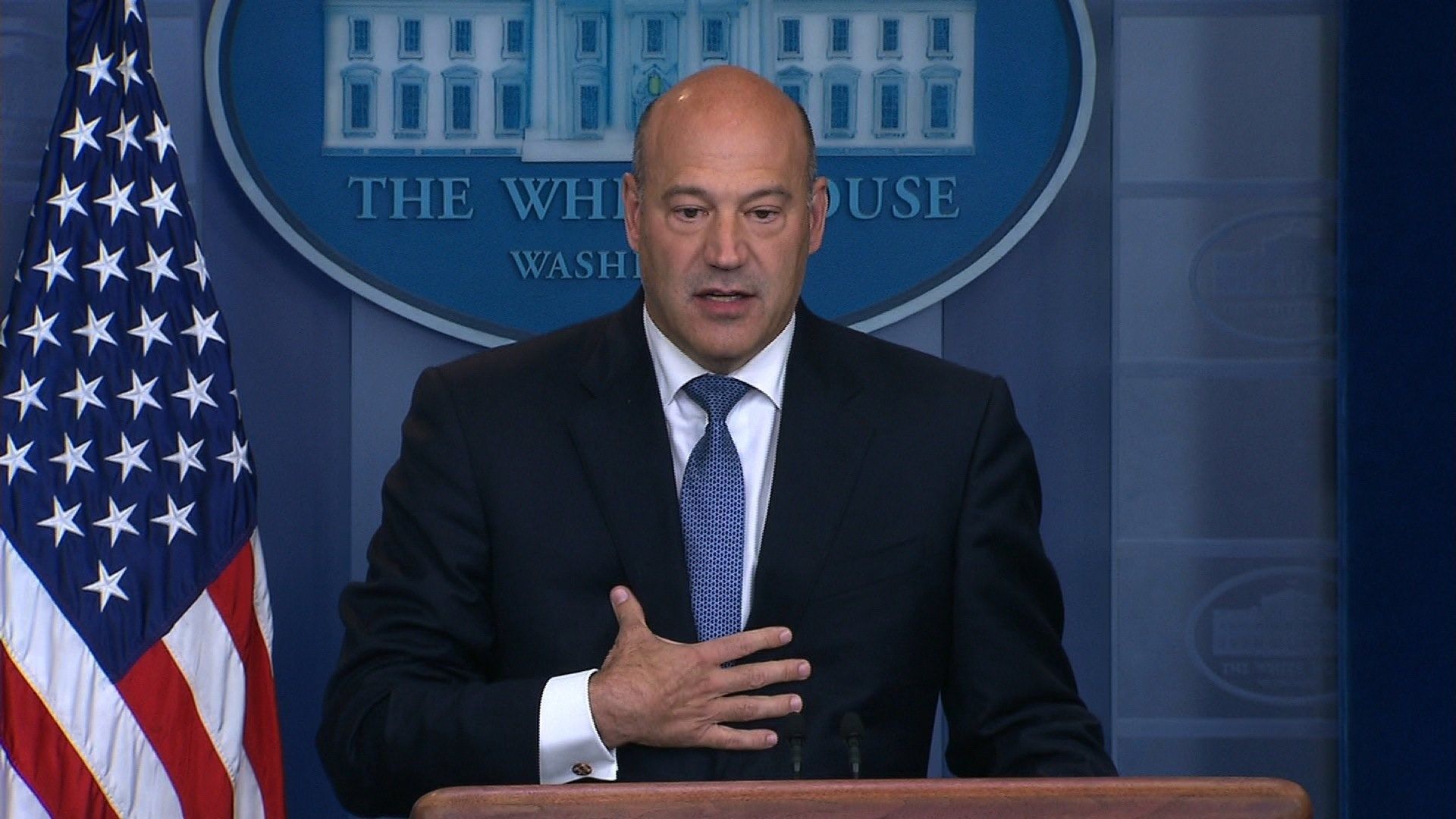One of Donald Trump’s most often repeated claims during the campaign was that America is getting screwed by trading partners whether it’s China, Mexico, or Japan. As a candidate, Trump promised to “negotiate better trade deals” and use things like tariffs to level the playing field for American workers. This became somewhat popular with his base, but the Republican Party has generally been the party of free trade in recent decades so the concept of imposing tariffs on things like steel and aluminium is causing great division and consternation within all levels of the GOP.
The latest casualty in Trump’s trade was is chief economic advisor Gary Cohn, a fierce advocate of free trade, Cohn vehemently opposed the President’s recent announcement of his desire to enact tariffs on steel and aluminum:
White House chief economic advisor Gary Cohn has resigned from President Donald Trump’s administration.
The former Goldman Sachs president and free trade advocate Cohn, whose departure date will come in a few weeks, decided to quit after Trump announced he would impose stiff tariffs on steel and aluminum imports.
In a prepared statement, Cohn said, “It has been an honor to serve my country and enact pro-growth economic policies to benefit the American people, in particular the passage of historic tax reform.”
“I am grateful to the President for giving me this opportunity and wish him and the Administration great success in the future,” Cohn said.
In his own statement, Trump said, “Gary has been my chief economic advisor and did a superb job in driving our agenda, helping to deliver historic tax cuts and reforms and unleashing the American economy once again.
“He is a rare talent, and I thank him for his dedicated service to the American people.”
Cohn clashed with Trump’s protectionist advisors on the issue of tariffs.
Cohn is not the only one who opposes such a move. Republicans in Congress have also voiced their concern, with Mitch McConnell saying that basically the entire Republican caucus in the Senate is worried:
“There is a lot of concern among Republican senators that this could metastasize into a larger trade war,” Mr. McConnell (R., Ky.) said. “Many of our members are discussing with the administration just how broad and how sweeping this might be.”
The comments were the majority leader’s first remarks on the issue since President Donald Trump last week said he planned to impose the tariffs of 25% on steel and 10% on aluminum. The announcement prompted worries among the congressional wing of the party that the move could provoke retaliation and hurt businesses that use steel and aluminum.
Mr. Ryan, speaking with reporters earlier in the day, called for a more targeted approach, a view shared by several lawmakers Tuesday.
“There is clearly abuse occurring,” the House speaker said. “Clearly, there is overcapacity dumping in transshipping of steel and aluminum by some countries, particularly China, but I think the smarter way to go is to make it more surgical or more targeted.”
The GOP donor class is by and large almost entirely made up of free-trade advocates. Trump has often attacked President Clinton for “giving us” NAFTA, the North American Free Trade Agreement. The truth that most people probably don’t remember is that NAFTA was passed and signed under President George H. W. Bush, not Clinton. Furthermore, it had support of Republicans in Congress at the time, along with many Democrats. Since that time, Republicans have been the “free trade” party pushing to expand trade deals around the world. However, President Trump claims that America is now getting the short end of the trade stick when it comes to what has happened in manufacturing the past thirty years.
With Republicans by and large against the President on this, the only support seems to be coming from accross the aisle:
As Republicans howl that new tariffs could cause an economic meltdown, a handful of Rust Belt Democrats are giving the president a rare serving of praise. His stance could give the trio — Sens. Sherrod Brown of Ohio, Joe Manchin of West Virginia and Bob Casey of Pennsylvania, all top GOP targets — a chance to tout their bipartisan credentials and defend their home-state metals industries all at once.
“I’m happy to see action being taken,” Casey said in an interview, acknowledging that his alignment with Trump “doesn’t happen that often.”
The remarks from Casey, echoed by Brown and Manchin, highlight one of the rare instances since Trump took office in which traditional partisan allegiances have been upended.
In some ways, Trump’s current position fits closer to Bernie Sanders than it does with the Wall Street influence among his top advisors. During the campaign, Bernie mentioned imposing tariffs on China, for example.
It remains to be seen how or if Trump’s tariffs get enacted since the official announcement is not due until next week. The Pentagon is urging targeted tariffs, so as to not upset our allies, but the White House is claiming that no country will be exempt. The President did, however, say that if Canada and Mexico are willing to come to the table on NAFTA, then they might find ways to exempt them from the upcoming tariffs. The hard-line approach may be the opening salvo on the topic of trade deals and renegotiation.
Donate Now to Support Election Central
- Help defend independent journalism
- Directly support this website and our efforts
